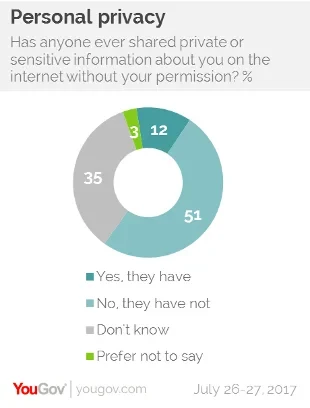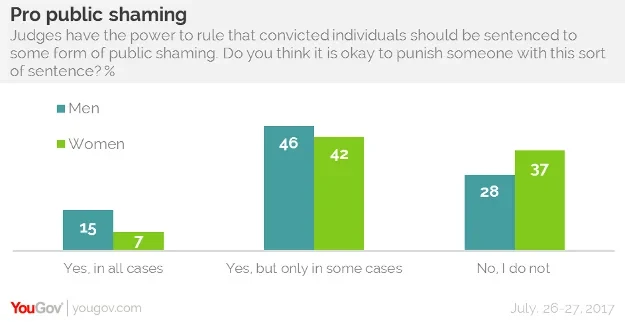However, only 21% support punishing children by embarrassing them on social media
A shame-free work environment—a space where employees are motivated not by fear of being singled out, but rather by new challenges and trust. It may sound simple enough, yet one-third of working adults have been reprimanded by a coworker in front of their work colleagues, and 28% have been made fun of publicly by a superior. Additional data from YouGov supports the fact that embarrassment is not an extinct management technique. In fact, one in four US workers have participated in this sort of demoralizing behavior themselves.

Public shaming is not confined to the workplace—one in ten US adults have had private or sensitive information shared about them on the internet without their permission. While half of Americans have not been digitally exposed, roughly a third, 35%, were unsure whether some of their personal details might be floating around on the web.
Social media in particular has blurred the lines of personal privacy. For instance, over the past few years, a subsect of parents have begun utilizing social networking sites as tools for disciplining their children. Many of these punishments have gone viral, including Facebook photos of kids holding up humiliating signs detailing the specifics of their bad behavior. 21% of US adults agree that, at least in some cases, parents should discipline their children in this manner.
Harkening back to the colonial days of stocks and pillories, Americans are largely on board with sentencing convicted criminals to some form of public shaming. Over half of US adults, 55%, believe that, at least in some cases, it is okay for a judge to use embarrassment as a means of punishing those who have committed a crime. Interestingly, men are more inclined to approve of public shaming sentences than women: 61% to 49%, respectively.











